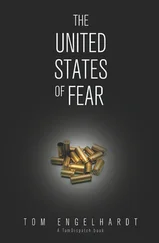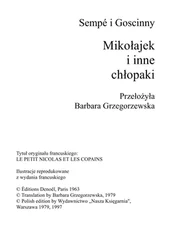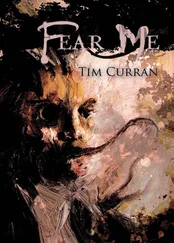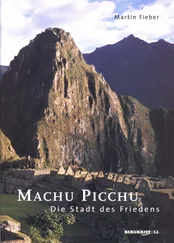“Yes,” Henry said.
“Mister Still will receive you tomorrow.” He looked Henry up and down and said he needed warmer clothes.
“Either that or warmer weather,” Henry said.
“I will get a coat for you,” Sam said, unsmiling. He turned his head to holler something into the back room, where the voices were chattering, and Henry noticed a long, raised scar on the back of his neck. “Wait here.”
Sam returned and led Henry to a house three blocks away, and down a couple of cement stairs to a door that opened into a basement passageway lined with exposed rocks. Sam stepped inside a doorway to the left and got a lamp lit; there was a simple bed with a basin and a towel and a water jug, full. Some paintings leaning against the wall with their backs to the room, two steamer trunks, pipes overhead. There was a damp smell, but it was warm.
“They had eighteen to come through just in the last four days,” Sam said. “You’ll be all right here for a night. You remember the way back to the office.”
“Two streets down, one to the right.”
“Number three-six-four,” Sam said. “The bells will tell you what time it is.”
When Sam had left, Henry sat on the bed. He listened for footfalls, conversation, any hints from the floor above his head, but he heard nothing. On the bedside table, a small box with a brass latch and a carving of a cross on top. He picked it up, set it back down. A brass candle holder shaped like a flower, with a taper burned to within two inches. Picked it up, set it back down, looked around. Right now, he thought, Mama is in the house, mending clothes. Enoch is in the shed, sorting rope or wiping down tools. He pulled off the boots, which had raised several blisters, but he kept every other piece of clothing on, hat included.
Quietly, he pulled the banjo out of its sack, set it on his lap, and softly sounded the strings, one at a time, adjusted the tuning, sounded them again. He played no pattern; a pattern would come later. He sounded each string softly and let it fade in turn.
The next morning he awoke, still in his clothes. A thin, horizontal wedge of sunlight struggled into the room through a shallow window at street level, dirty enough to obscure a view of the outside world. Carts passing on the street, people walking, voices. His bag was in the corner, where he had put it, and the banjo.
A piece of paper had been slid under his door; on it, an arrow, pointing toward the door and the hallway through which he had entered.
He pulled the bed covers up, straightened them. A mounting feeling of excitement. He was in Philadelphia. Not on the farm, not hiding in a barn. Tentatively, he raised the iron latch and opened the thin wooden door to find a tray on the hallway floor. On it, a plate with a towel covering two corn muffins, and next to it a glass of milk.
It was time to head to Mr. Still’s office, and the people who would help him. He picked up his duffel and the bag containing his banjo and, with a look around, quit the room and walked up the stairs and out into the morning.
Henry was reading the spines on a wall of bookshelves in a large room that also contained a broad desk and a table covered with neat stacks of papers, three heavy wooden chairs deployed around it. The door opened and Henry turned, holding a volume in his hand, to see a tall, clean-shaven, elegantly dressed man who regarded him with a kind smile. Henry had assumed that such an important man would be white, and it took him some moments to realize that his benefactor was, in fact, a Negro.
“Have you found something of interest?” Closed the door behind him. Noting the familiar cover, William Still said, “Dickens was here, some years ago.”
Astonished, Henry said, “In this room?”
“In Philadelphia,” the forgiving reply. “Who taught you to read?”
“My mother.” The books smuggled one by one out of Master’s library, then replaced. Except for one. Sounding out the words by the wavering candlelight.
“Please. .” The man gestured to a chair and walked around his desk to seat himself. Henry took the proffered seat, still holding on to the book, a copy of Barnaby Rudge .
The great man asked Henry a number of questions about where he had come from, if he had been misused, taking notes on his story as Henry spoke. Mr. Still asked Henry about the banjo, then he laid out the various means of getting to Canada.
Henry had heard about Canada — some of the slaves at The Tides had called it “Canaan,” and the family in Wilmington had assumed that he was bound for Canada. But Henry did not want to go there, and he said this. Canada he pictured as a cold place, with no trees, where people tended a few tomato plants and read the Bible and wrote letters of gratitude. “I want to stay in Philadelphia,” he said.
William Still drew a measured breath and said, “You must realize that you could be captured at any moment and brought back to Virginia.”
“I won’t go back,” Henry said.
“The only way to make certain of that is to continue on to Canada.” Still paused. “You’re free to do what you want — of course — but this is how things stand. You or any other Negro — whether under title to a slave owner or not — is in danger of being captured and taken south as long as he is in this country. Moreover, it is a crime for citizens not to aid in that capture if asked. This is now the law of the land. This city has many sympathizers with our cause, but you are not safe if someone comes to reclaim you.”
“You haven’t been captured,” Henry said.
After a moment’s surprise, Still replied, “I am known, and I would be too easily recognized.”
Recognized, Henry thought. “What do they do in Canada?”
“They farm, or they run businesses of their own. They raise families. They do what any other human being is allowed to do, or should be allowed to do by natural right, here in the United States. They lead their lives. Perhaps you imagine being there alone, but there are already thriving communities of our people, who live free of the threat of the lash. Hundreds of them. I imagine your master will come looking for you.”
“He is not my master.”
“Yes,” Still said, holding up his hand. “I misspoke.”
William Still said that if Henry would not go to Canada, he could perhaps be of use in Philadelphia, speaking at meetings. He said he would arrange for Henry to stay with a white family named Passmore, temporarily, and he directed Sam to bring him there. “Hilda will provide you with some fresh clothes.”
Henry was still holding on to the book and he held it out to Mr. Still.
“Would you like to borrow it?”
“I’ll return it,” Henry said.
“I know you will.”
In the evenings the Passmores sat by lamplight, quiet, the Bible reading. Their son, seven years old. Robert Allen Passmore. Always addressed as Robert Allen. On the second night, Henry caught his eye. “Here,” Henry said, presenting the two open, upward-facing palms of his hands, the right hand displaying a copper disc. “Here is a penny. I’ll let you keep it if you can tell me which hand has it after I’ve closed my fists.”
An eager nod from the boy.
“Watch closely, now.” The boy’s attention focused on his hands.
“Now!” and with a rapid snap of the wrists the hands flipped, clenched, palms downward now, awaiting the verdict. The boy tapped the right hand, where he had last seen the coin, the obvious choice. Henry righted his hands upward and opened them to reveal — but how? — the penny on the left palm. The boy in transports of wonder and delight. Henry noticed the glance that went between the boy’s parents; it was not approving.
During the day, he walked. No one accosted him; no one seemed even to notice him. Everything about the city made him hungry. He would walk all the way into town, fascinated, then come back to the Passmores’, invigorated and tired. Theaters, factories, stores for tools, eyeglasses, wigs, stoves, steam engines, trunks, satchels, carpetbags; liquors, coal, candles, bells, chocolates, feathers, clocks, boots, books, coffee, rope. . Standing in front of the bakery on Chestnut and Market, sugar on his chin, sun on his face, he savored the pure and undefiled moment.
Читать дальше










